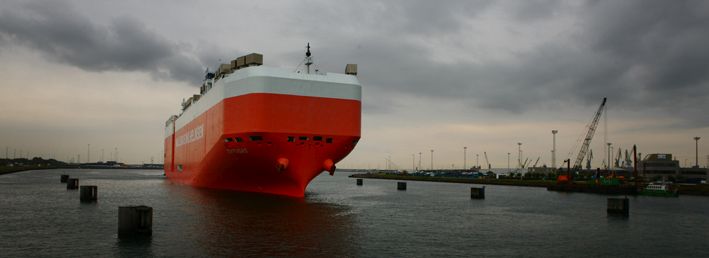Business, Feature, Freight News, Logistics, Sea
Flanders ready to test UK trade platform
[ December 15, 2023 // Chris Lewis ]The first pilots of the Gateway²Britain trade facilitation platform will take place in early 2024, the Flanders government has announced.
The scheme, first revealed in June 2023, aims to make trade between Belgium and the UK as frictionless as possible by gathering up all documents involved in international trade – invoices, bills of lading, customs entries, and health certificates for example – into electric form and uploading them on a single data platform, where they can be shared by all parties involved. The platform will also offer management of shipment/transport, authorizations and notifications.
The platform is being built by the Port of Antwerp-Bruges, while the Flemish VIL logistics institute will certify logistics players that will help smaller firms get assistance to provide a low-entry barrier for trade with the UK. It is seen as a significant competitive advantage for the port in competition with other continental gateways.
The catalyst for Gateway²Britain was Brexit, explains trade and investment counsellor at Flanders Investment and Trade, Dirk Verlee. He told FBJ: “Each year, there are now 8 million customs declarations between Belgium and the UK – 72% of them exports from Belgium and 28% exports from the UK to Belgium – excluding e-commerce transactions. The benefit will be huge if all those transactions can be handled on a single platform. At the moment, goods often arrive before the documents do, which means that you often incur charges for storage and warehousing.”
Every single consignment has a minimum of ten documents associated with it and sometimes as many as 20, he says. “Paper documents make the process long and complex – this platform could simplify it,” Verlee says.
It will be possible to upload paper documents as PDF files to the platform and digitise them; in some cases it will be possible to upload them direct into company ERP systems.
Only authorised parties will be able to view the documents and not all parties will be able to see all documents. For example, a haulier would have access to the bill of lading but not the commercial invoice, while customs authorities would be able to see a wider range of items.
The ‘1.0’ phase of the platform in the first quarter of 2024 is very much a pilot scheme, Verlee continues, although it will be applied to real, ‘live’ shipments. Initially, it will cover exports from the Flanders region itself to the UK. It will be opened up to exports from the UK to Belgium later and it might eventually even be extended to trade between Belgium and other third countries such as the US or Asia.
Gateway²Britain is being designed from the outset with smaller companies in mind; often it is these firms that have the most issues with the red tape surrounding international trade. Physical touchpoints where traders can have goods and paperwork handled will be available through a network of certified forwarders, the first four of whom have already been announced – Ziegler, Mainfreight (a New Zealand-owned company with a strong presence in the UK and Benelux as well as an operating partnership with forwarder Davies Turner), Deny Logistics and Corneel Geerts. Other logistics companies are expected to join them.
A later stage of the platform could also see addition of digital tracking and tracing of goods either by barcode or electronic systems.
The concept of uploading multiple documents from all parties involved in international trade to a platform is of course familiar to anyone who has studied the UK and other government proposals for single trade windows (STW). Gateway²Britain has open systems architecture and uses the same concepts as the UK STW. “We have been in contact with the different UK government and agencies and discussed inter-operability.”
In many respects, the platform is a prototype STW, Verlee considers.

Tags: Flanders Investment and Trade; Port of Antwerp-Bruges












